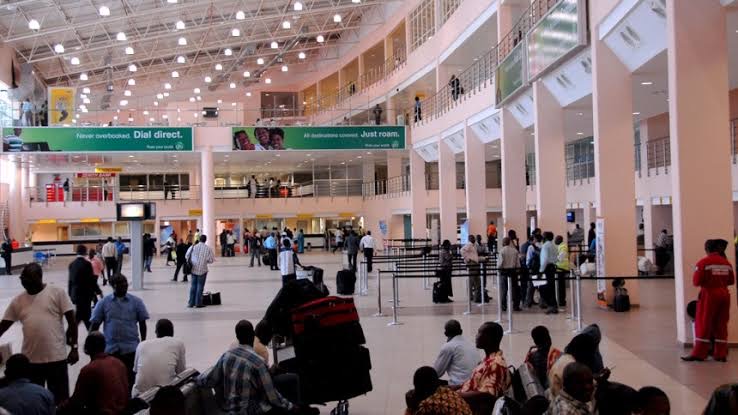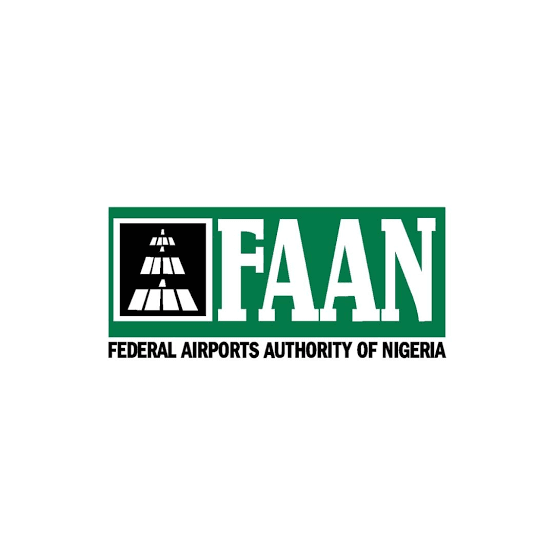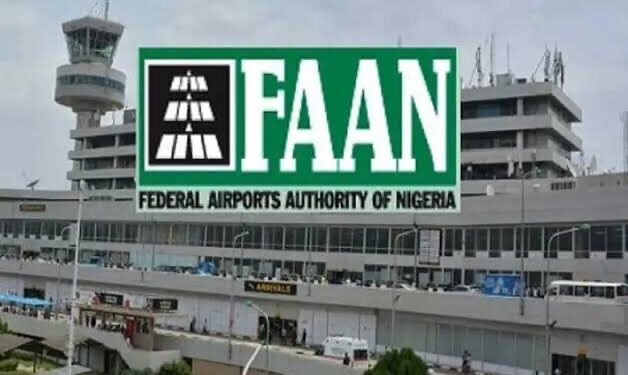Nigerian state governments are pumping billions of taxpayers’ money into less productive and low-passenger airport projects across the country.
The feasibility of these multi-billion naira projects remains questionable given the low number of incoming and outgoing passengers and air traffic. A breakdown of government expenditure on airports shows that Bayelsa state spent 60 billion naira on airports, and Akwa Ibom spent 20 billion naira.
Delta and Jigawa spent 17 billion naira each, while Bauchi pumped in 15 billion naira on airport projects. Kebbi in turn spent 15 billion naira on its airports. Other states in the same trajectory are Ogun (20 billion naira), Ekiti (20 billion naira), Abia (40 billion naira), Kebbi (15 billion naira), Nasarawa (40 billion naira), Osun (40 billion naira), and Zamfara (62.8 billion naira).
The cargo airport in Anambra State, in southeastern Nigeria, cost 10 billion naira, while Bayelsa International Airport cost 60 billion naira. In addition, Wachakal Airport, in Damaturu, Yobe State, cost 18 billion naira but is yet to be completed. The construction cost of Dutse International Airport in Jigawa was 20 billion naira.
Despite billions pumped into these airports, Lagos, Abuja, Kano, Port Harcourt, and Enugu generate 89.7% of the country’s passenger traffic. The remaining 10% is shared among the remaining 27 state airports. Passenger numbers in 2022 were 16.2 out of 14.2 million passengers in 2021, a 13% increase over the period.
Nigeria has 32 airports, including five accredited international airports; Nnamdi Azikiwe International Airport (NAIA), Abuja, Port Harcourt International Airport (PHIA), Mallam Aminu Kano International Airport (MAKIA), and Akanu Ibiam International Airport (AIIA) in Enugu.
Of the more than 16 million travelers who entered or departed the country in 2022, the five airports mentioned above carried 89.7 percent of all travelers during the period, while the other 27 airports carried just 10.3 percent, of passengers during the period.

Data shows passenger numbers will fall to 15.89 million by 2023. As a result, experts say there are no passengers to back up the “white elephant projects” being built in Nigerian states.
“Apart from security services, standard regulations, monitoring, and enforcement, the Governments have very little or nothing to do with commercial aviation services,” says John Ojikutu, a former airport commandant and CEO of Centurion Aviation Security and Safety Consult Nigeria.
“Akure airport in Ondo state, less than 40 minutes’ drive from Ado-Ekiti, has not recorded 200,000 passengers in the last decade. Why should Ekiti build another airport without knowing how many of those 200,000 passengers are from within the state?”
“Same with Umueri in Anambra State between Enugu and Asaba. Ebonyi is right next to Enugu. Abia is planning an airport between Owerri and Port Harcourt. This is also true for many other airports in the North, especially Bauchi, Gombe, Taraba, etc,” he said.
He said the states should build toll highways between their capitals and the nearest airports.
Ojikutu said most of those traveling by air were government and corporate officials whose trips were usually official and whose airfares were paid for by their employers.
“It makes no economic sense for states to build airports when the money should be spent on other social services such as schools, hospitals and roads,” he added. Seyi Adewale, CEO of Mainstream Cargo Limited, told umpirenews that he had legitimate concerns about a number of airport projects in various Nigerian states.
Adewale said these airports are poorly maintained, noting that most state governments do not have the requisite skills and structures to maintain efficient airports.
“Some states have handed over airport maintenance to the Federal Airports Authority of Nigeria (FAAN), but FAAN is still busy maintaining major airports across the country.
“Many of these national airports currently do not have the capacity to generate sufficient revenue and are unable to attract concessionaires due to reasons such as low Gross Domestic Product (GDP) of the states, low status of their people, low-income propensity of businessmen to be located there or other aspects related to trade, politics, and tourism. Many of these states cannot attract enough investors and tourists,” he said.
Recently retired passenger airline pilot Horace Miller-Jaja described many of the national airports under construction as “political misfits” because they have no economic value.

According to Miller Jaja, huge amounts of money have been spent on its construction that would be better spent in other parts of the state. “It is under-utilized. Airlines do not serve it because there is no passenger traffic or cargo to carry. The state will hand over ownership and operation of the airport to the federal government.
“The maintenance of airports in the past has been extremely poor, given the operating modus of FAAN. FAAN’s change of leadership over the years has not helped as each new management brings its own plans and ideas for development and modernization,” he said.
The captain explained that when these airports were built, no space was provided for spatial expansion, noting that many terminal buildings were abandoned.
Olumide Ohunayo, industry analyst and director of research, at Zenith Travels, argued that while some of the airports under construction are profitable, passenger growth is stagnating due to lack of capacity, competition, and innovation.
“It is not about the airport being built, but about the airlines. It is the airlines that are making the airports inefficient.
“Airlines can serve these hinterland airports and operate flights such as Benin-Asaba, Asaba-Owerri, Kebbi, Kano, etc. We are pushing for this and will also be pushing for it with the Nigerian Civil Aviation Authority (NCAA). Once we achieve that, some of these airports will resume operations. These airlines can start this as a social responsibility,” Ohunayo said.
He said there was a need to look at how to deal with airlines and what the procedure for obtaining Air Operators Certificates (AOCs) would be. He also said there was a need to harmonize documentation rather than making it cumbersome and expensive for airlines.
Managing Director of Asaba Airports Company, Christopher Pennink, argued that passenger numbers were not a good indicator of the profitability of Nigerian airports.
Pennink said it was rather due to seat availability, noting that airlines were going through a very difficult time and could not offer enough seats given the demand.
However, Managing Director of the Federal Airports Authority of Nigeria, Olubunmi Kuku, said only three of Nigeria’s 22 airports were profitable.
Kuku, in an interview on Tuesday, said other airports were subsidized because passenger numbers were not in line with their operating costs.

































